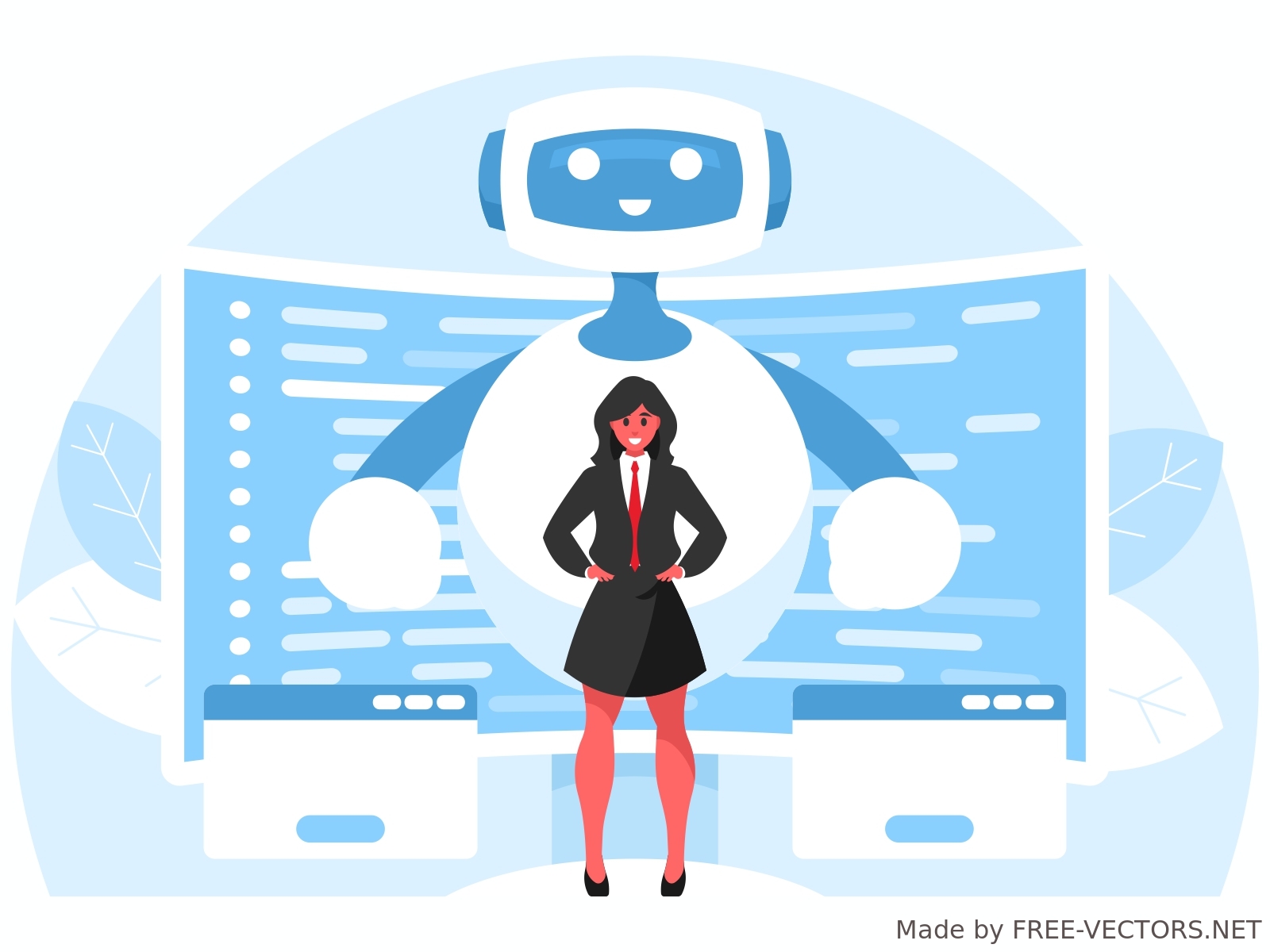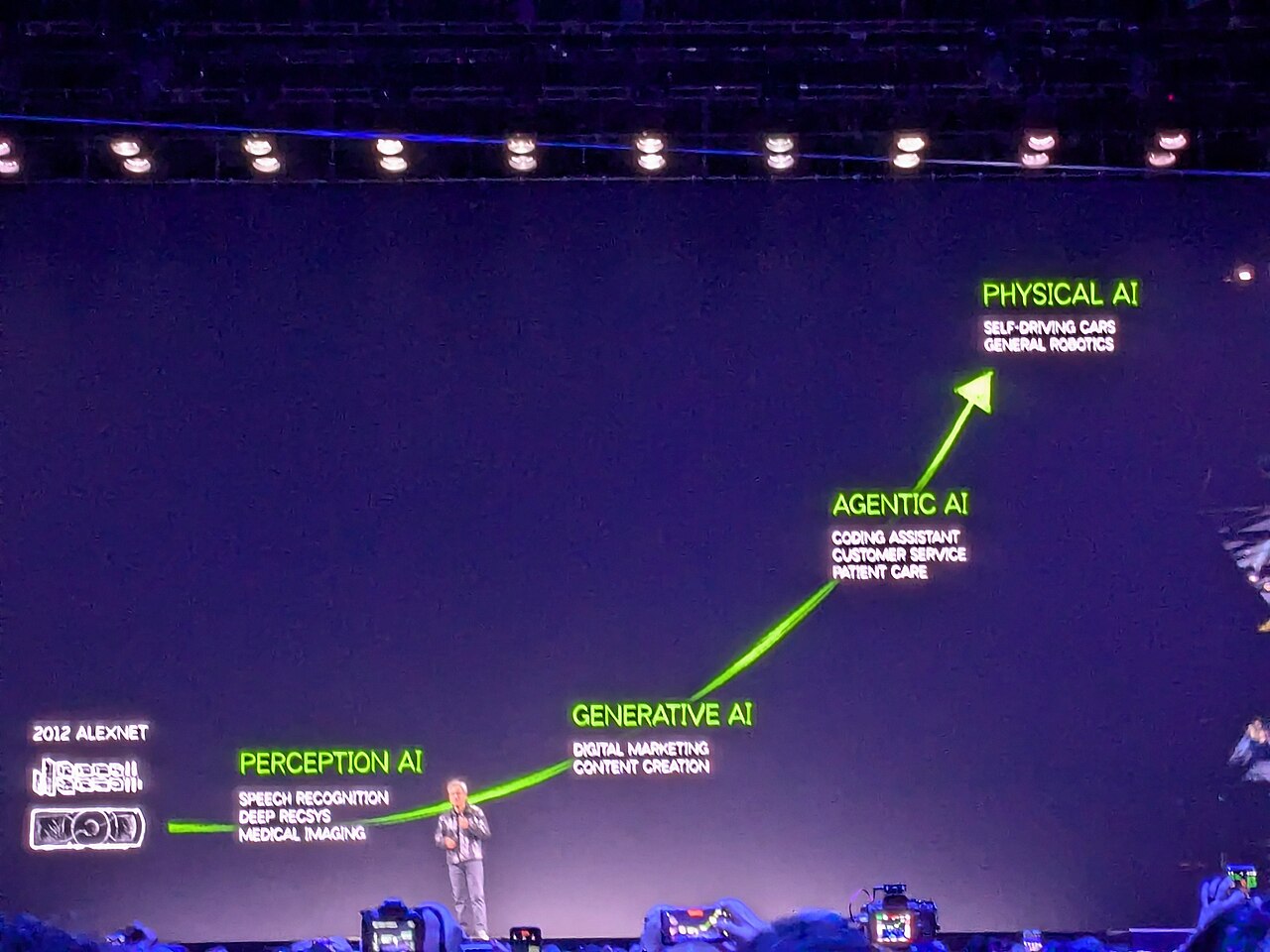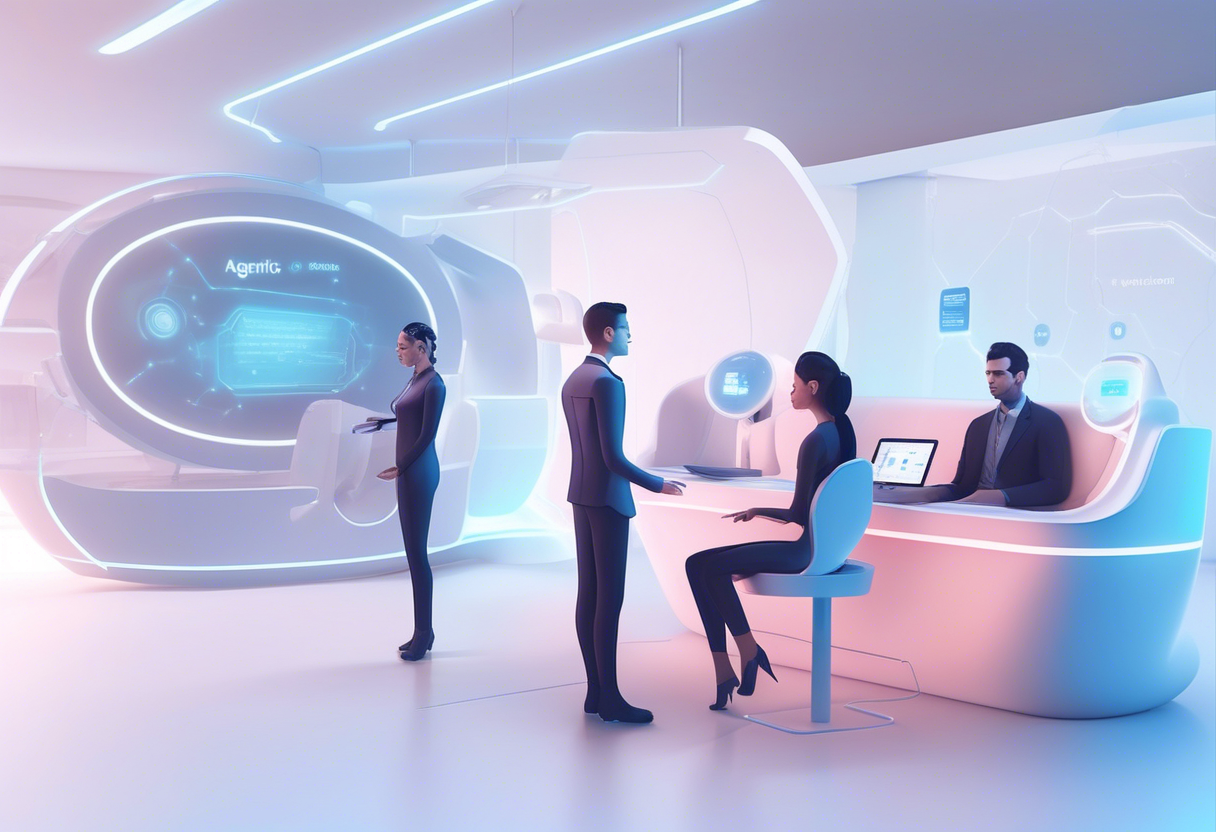
How will AI change customer service by 2025? That's the big question. By then, Gartner says 85% of customer interactions might not even involve a human. So, AI's role in customer experience is getting pretty important. Let's look at how AI is shaking things up in customer service. We're talking about chatbots that can pick up on complex emotions and predictive analytics that know what you need before you do. The possibilities with AI are huge and pretty cool. We’ll check out practical uses, see what Deepbrain AI is up to, and tackle your questions about where customer service is headed. AI isn't just a tool anymore; it's changing how we connect with customers.
Summary: This article describes AI trends and practical applications in transforming customer experience, highlighting solutions by Deepbrain AI. It provides insights into AI's role and addresses common questions about its implementation.
Understanding AI in Customer Experience
AI's Role in Enhancing Customer Experience
AI in customer experience revolves around leveraging technologies such as machine learning, natural language processing (NLP), and predictive analytics to enhance personalization and efficiency in interactions. Imagine having a smart assistant that becomes more familiar with you after each interaction. By swiftly analyzing customer data, AI can customize experiences to align with individual preferences, thereby boosting engagement and fostering repeat business.
With predictive analytics, AI anticipates customer needs or potential issues, enabling businesses to address them proactively, which builds trust and loyalty. AI chatbots and virtual assistants are available 24/7, managing routine inquiries so human agents can focus on more complex issues, thus reducing wait times and increasing satisfaction.

Additionally, AI provides human agents with real-time insights and tracks conversations during handovers, ensuring a seamless customer experience. AI tools also utilize NLP to assess customer sentiment and intent across various channels, identifying and resolving issues before they escalate. Modern AI assistants can understand context, sentiment, and even casual language, making interactions feel more human. Predictive analytics in AI leverages historical and current data to predict customer needs or potential churn, assisting brands in crafting proactive and personalized strategies.
Evolution of AI in Customer Experience
AI in customer experience has significantly evolved from basic scripted chatbots to sophisticated virtual assistants capable of understanding natural language and independently resolving issues. Initially, AI focused on automating routine inquiries and directing tickets. However, it now handles complex interactions and provides real-time support to agents.
The shift towards AI-driven personalization and predictive analytics has transformed the landscape by enabling businesses to anticipate and meet customer needs more effectively.

Generative AI technologies are increasingly influential in shaping customer experiences, with many executives acknowledging their impact on innovation. The integration of AI tools across various channels such as social media, live chat, and messaging apps underscores the move towards comprehensive support.
AI has progressed from simple automation to advanced systems that deliver personalized, predictive, and seamless interactions across multiple channels, significantly enhancing customer experience and business outcomes.
For further reading, explore these resources:
- AI in customer experience
- AI-driven predictive analytics
- AI-powered chatbots
- AI tools for omnichannel support
Key AI Trends Transforming Customer Experience
Hyper-Personalization with AI in Customer Experience
AI is revolutionizing customer experiences by gaining an in-depth understanding of individual preferences. It's more than just analyzing past purchases or demographic data. AI delves into extensive datasets, including social media activity, online browsing habits, and purchase history. With this information, it predicts future desires and offers precise recommendations.
This level of personalization is a significant advantage for businesses focused on customer retention. Many brands are embracing this AI trend to create highly tailored experiences that enhance engagement, drive sales, and reduce costs through adaptive chatbots. A telecom company exemplified this by using AI to analyze customer interactions, achieving a conversion rate exceeding 10% with personalized strategies. As customer expectations for personalized service grow, brands offering detailed personalization are distinguishing themselves in the market.

AI-Powered Automation and Chatbots in Customer Service
AI tools are transforming how customer satisfaction is measured by evaluating every interaction, beyond just survey feedback. These tools assess factors like tone, resolution speed, and customer sentiment. Automation is crucial for scaling customer service, with half of CX professionals considering it essential while maintaining a human touch.
New AI tools identify trends in satisfaction scores, suggest enhancements, and uncover reasons for customer dissatisfaction. Platforms like Crescendo.ai analyze various communication forms—chats, emails, calls—to provide accurate satisfaction scores and improvement recommendations. Smart chatbots play a vital role, offering personalized assistance and instant problem resolution, which enhances engagement and reduces costs. Available 24/7, they escalate complex issues to human agents when necessary. For example, Lufthansa Group utilizes AI to manage over 80% of customer requests, demonstrating the effectiveness of these bots.
Voice AI Enhancing Customer Interactions
Voice AI is a prominent trend, making customer interactions more natural and personalized. Consumers appreciate having control over their communication with brands, and voice AI facilitates this by providing a conversational and adaptable engagement method. Omnichannel strategies incorporating voice AI ensure seamless experiences across all touchpoints, whether online or in-store.
Voice AI employs natural language processing to comprehend customer communications, enhancing the feeling of being understood and increasing satisfaction. Industry leaders like Google and Amazon are at the forefront with their voice assistants, Google Assistant and Alexa, handling tasks from reminders to smart home controls. Brands are developing AI ecosystems that integrate all customer interactions, allowing seamless transitions between voice, digital, and physical channels.
Agentic AI and Intelligent Assistants in Customer Service
Agentic AI, including intelligent assistants, is transforming customer service by delivering smarter, more proactive support. These AI systems can autonomously make decisions, streamline workflows, and manage specific tasks like billing or tech support, freeing human agents from repetitive duties.
Advancements in AI copilots and agentic AI, combined with CRM and omnichannel tools, are enhancing customer interactions' efficiency and effectiveness. These tools enable companies to deliver personalized service at scale while preserving the human element. AI copilots assist customer service agents with real-time suggestions and automate simple tasks, improving response times and satisfaction. For instance, Liberty London employs AI to understand customer intent and mood, aiding agents in tailoring their responses. This proactive approach not only improves the customer experience but also strengthens the relationship between businesses and their customers.

In conclusion, the major AI trends in 2025 shaping customer experiences include hyper-personalization, AI-powered automation and chatbots, voice AI for complex customer issues, and the emergence of agentic AI with intelligent assistants. Together, these trends enable brands to offer more personal, efficient, and seamless interactions across multiple channels, while maintaining a balance between technology and human interaction.
Practical Applications and Use Cases
AI-Driven Customer Journey Mapping
AI is a significant force in mapping how customers interact with businesses. By analyzing real-time data from various sources, AI enables companies to personalize interactions and anticipate customer needs. For instance, in the event of a shipping delay, AI can detect it early and propose solutions to maintain customer satisfaction. It also processes vast amounts of feedback and social media activity to identify patterns and swiftly address issues. This capability allows businesses to resolve problems more quickly, enhancing customer satisfaction. Furthermore, generative AI assists customer service agents by providing live tips and suggestions during calls, improving the speed and quality of service.
Consider a retail company that uses AI-driven mapping to detect an increase in delivery complaints and automatically dispatch personalized messages with alternative solutions.
AI in Specialized Industries
AI's impact extends beyond major players to smaller, specialized sectors as well. In healthcare, AI systems monitor device performance, addressing issues before they affect clinicians, thereby ensuring smoother operations. Luxury retailers employ AI to gauge customer desires and emotions, enabling agents to offer more personalized support. AI also automates repetitive tasks, such as checking order statuses or answering account inquiries, benefiting industries like e-commerce, telecom, and banking. For example, a high-end department store leverages AI to comprehend customer sentiment in support tickets, allowing agents to respond more effectively and foster loyalty. Additionally, Unity’s AI agent managed 8,000 support tickets, saving the company $1.3 million, demonstrating AI's potential to reduce costs and enhance efficiency in customer service.
Building Trust with Ethical AI
As AI becomes more prevalent in customer interactions, ethical usage is crucial. AI tools can rapidly identify negative feedback and issues, enabling businesses to address problems swiftly and maintain customer trust. By ensuring AI delivers fair and reliable interactions, companies can build trust with their customers. Ethical AI involves using technology to assist, not replace, human empathy—such as providing AI support to agents rather than fully automating responses in complex situations.

A telecom company analyzing customer sentiment and reaching out with personalized solutions exemplifies how AI can build trust and reduce customer churn. By prioritizing ethical practices, businesses can mitigate risks and enhance their reputation, as customers tend to favor brands perceived as responsible and ethical.
AI in customer experience is now a key component of business strategies, offering opportunities for innovation and improvement across various fields. By focusing on ethical AI, companies can forge lasting trust and loyalty with their customers.
AI Solutions by Deepbrain AI
Deepbrain AI Studios: Transforming AI Customer Experience
DeepBrain AI is a leader in artificial intelligence, especially renowned for its AI Studios platform. This innovative platform leverages hyper-realistic AI avatars to transform customer service experiences. These avatars, crafted using cutting-edge technologies like GANs and natural language processing, achieve a remarkable 96.5% likeness to real human footage, enabling lively and expressive interactions.
AI Studios supports over 200 languages and integrates seamlessly with chatbot builders, making it invaluable across sectors such as finance, healthcare, media, and retail. By utilizing ElevenLabs' voice technology, AI Studios creates realistic avatars with expressive voiceovers, allowing businesses to produce scalable video content with multilingual dubbing and voice cloning. For example, broadcasting companies utilize these avatars to develop AI news anchors, providing 24/7 customer support and enhancing global communication.
AI Customer Experience Success Stories and Innovations
DeepBrain AI's avatars are revolutionizing customer service by offering 24/7 support through personalized and engaging interactions, significantly improving customer experience and efficiency.
In the retail sector, DeepBrain AI partnered with a company to implement AI avatars for customer support, resulting in increased customer satisfaction and loyalty through realistic and empathetic interactions. Across diverse industries, AI solutions have saved time and enhanced customer engagement by automating routine tasks while maintaining a human touch. For instance, DeepBrain AI's technology is deployed in organizations like 7-Eleven and KB Bank to boost engagement and streamline financial services, showcasing AI's potential to elevate customer experiences.
DeepBrain AI holds 148 AI patents and has been recognized with CES Innovation Awards. It ranks among the Global Top 250 Generative AI Enterprises, underscoring its significant impact on the AI industry.
FAQs
How AI-Driven Hyper-Personalization Boosts Customer Loyalty
AI-driven hyper-personalization is transforming customer loyalty strategies by offering experiences tailored to individual tastes and needs. With AI, businesses can delve into customer data—like past purchases and browsing habits—to predict what customers want in real-time. This helps companies create personalized experiences that make customers feel special, boosting loyalty.
For example, AI can automate personalized messages and determine the "next best action" for each customer, leading to genuine interactions that enhance satisfaction and keep customers coming back. Consider a retail company using AI-driven customer experience automation to send offers based on past behavior. This approach results in more repeat purchases and stronger loyalty.

Challenges in Integrating AI into Customer Service
Integrating AI into customer service presents several challenges. A significant hurdle is ensuring AI systems can understand and respond to diverse customer questions, especially with natural language processing involved. This requires algorithms that grasp context and subtlety.
Additionally, integrating AI with existing customer service systems can be complex and costly. Companies must balance AI usage with maintaining human interaction, as over-reliance on AI chatbots can frustrate customers when issues become too complex. Data privacy and security are also major concerns, given the volume of customer data used for AI personalization.
For instance, a telecom company faced difficulties integrating AI chatbots with their CRM system, requiring extensive customization and training to ensure smooth transitions between AI and human agents.
Agentic AI vs. Traditional Chatbots in Customer Service
Agentic AI marks a significant advancement over traditional chatbots by offering more independent and context-aware interactions. Traditional chatbots adhere to scripts and handle basic questions, while agentic AI employs advanced machine learning and natural language processing to manage complex interactions.
This capability allows agentic AI to understand context, make decisions, and resolve customer issues without always requiring human intervention. It can even predict customer needs and suggest the next best steps, making customer service more efficient and personal.
For example, a financial services firm might utilize agentic AI to process loan applications independently, understanding customer context and making eligibility decisions more swiftly than traditional chatbot support.

AI customer experience technologies are rapidly evolving, with the Contact Center as a Service (CCaaS) market using AI expected to reach $17.19 billion by 2030 in the U.S. This growth illustrates the swift adoption of AI-driven chatbots and virtual assistants, which offer 24/7 support, reduce wait times, and enhance agent productivity. By addressing routine questions and providing personalized assistance, AI accelerates response times and elevates customer satisfaction, demonstrating its substantial impact on customer service.